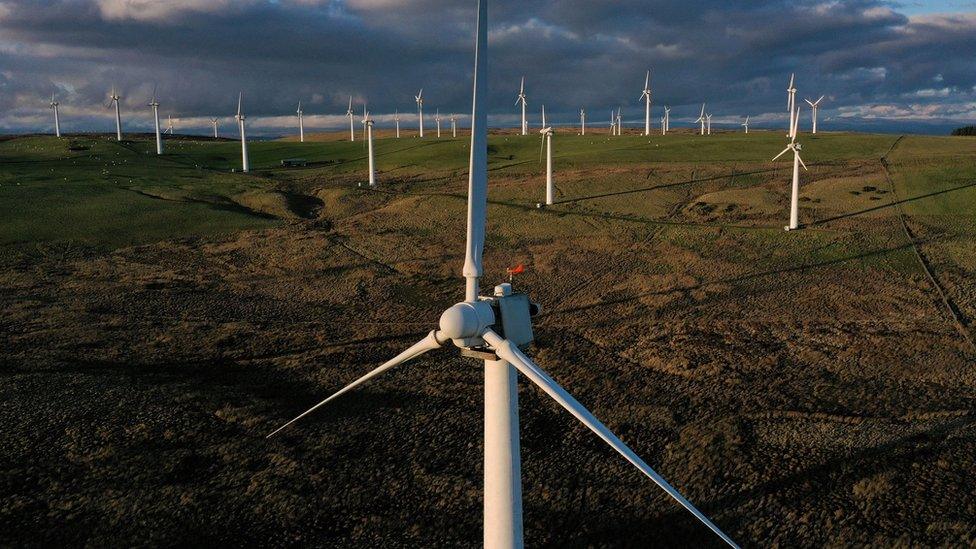Free electricity: Is it really fair?
- Published
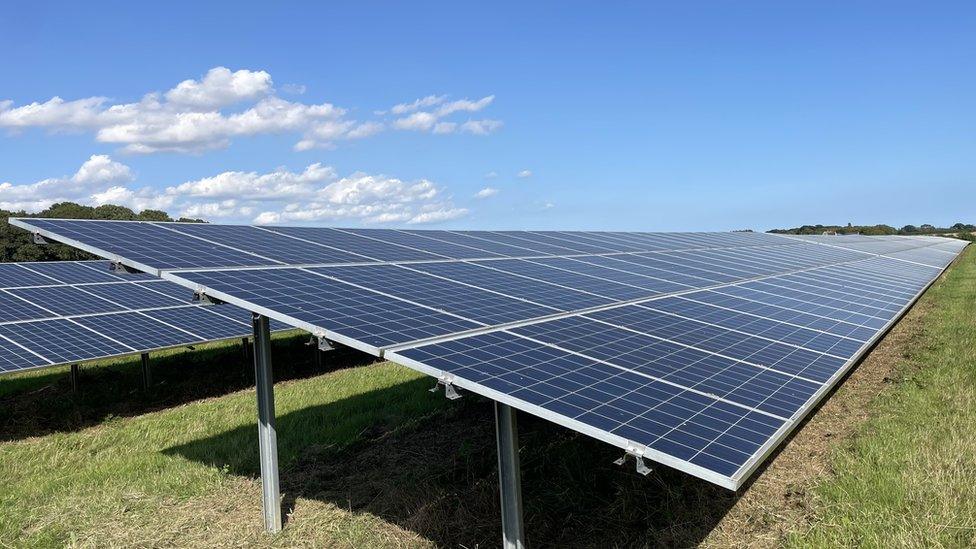
A solar farm in St Osyth, near Clacton-on-Sea, was told to shut down for part of an afternoon in August
Free electricity? It sounds too good to be true, but that's what two companies are offering in a bid to shift demand to when power is plentiful.
With the number of solar and wind farms increasing all the time, our electricity grid is more complex than ever.
But sometimes more power is produced in one part of the country than can be used, so they are ordered - and paid - to shut down.
This is known as "constraint" and cost £1.2bn in 2021, which ultimately goes on to customers' bills. It is also a waste of low-carbon power.
That is why one grid operator and one power supplier are trialling the free electricity scheme. But is it fair?

For Daryl Bradley, the offer of two hours of free electricity one Friday afternoon in August, was "a challenge".
He set timers for his tumble drier and electric car charger – even using the window to top-up four large batteries in his garage.
"We were keen to try it out and maximise and see how much we could save during that period," Mr Bradley, 47, said.
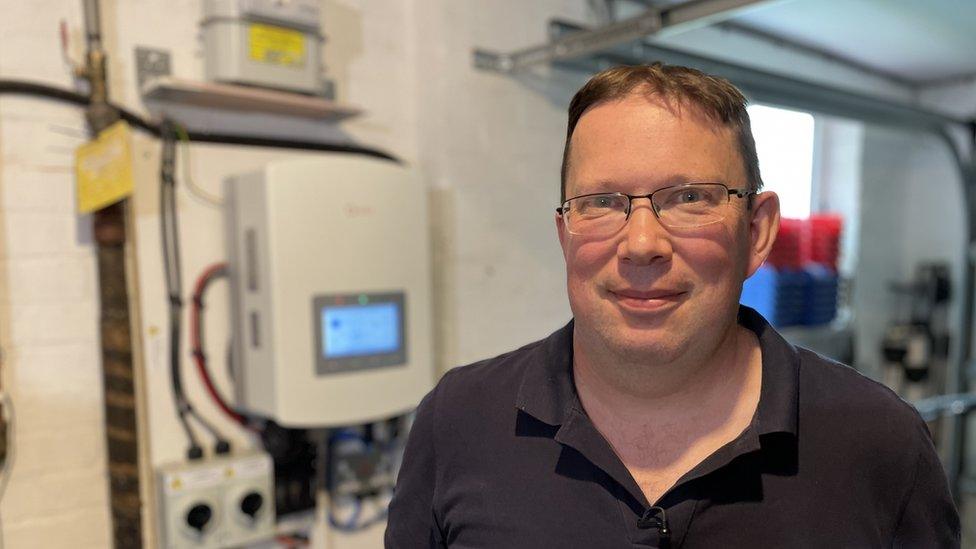
Daryl Bradley said he managed to save around £6 by using electricity in the free two-hour window
He, his wife and two daughters were among thousands taking part in a scheme run by UK Power Networks, which operates the electricity grid in the East of England, London and the South East, and energy provider Octopus.
For the power firms, it was a test of how much customers were willing to move when they use electricity.
For Mr Bradley, of Cambridge, it was a chance to press the technology at his home into action.
He has an electric car, four 2.4KWh batteries and an immersion heater that can use solar power.
During that day his home consumed 36KWh of electricity, 24KWh of which was during the free window.
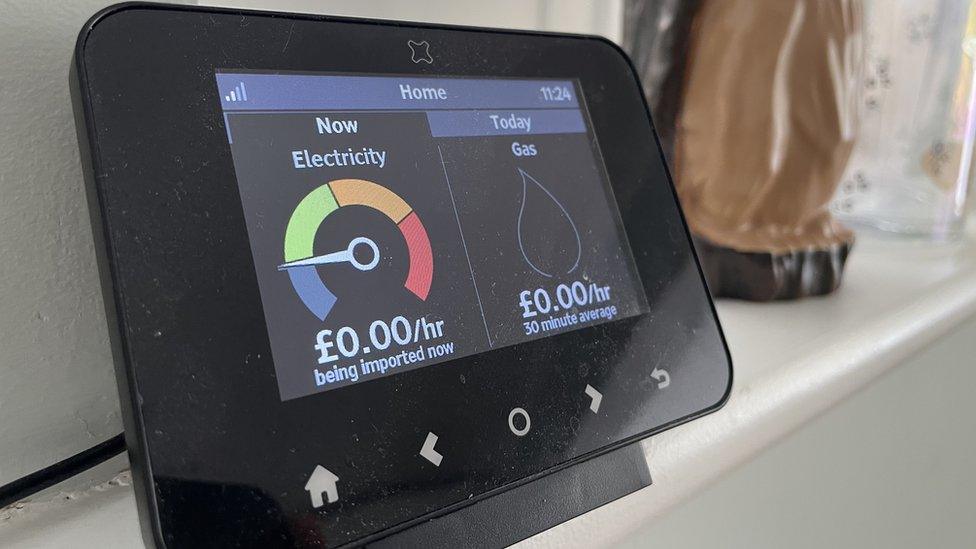
Mr Bradley said his family did not use more electricity than usual
Mr Bradley said he was "really pleased" to have moved two-thirds into the free window and – crucially – the family did not use more power overall.
"The important thing with this was we just wanted to shift the time we were using it," he added.
He estimates he saved between £5 and £6.
Octopus said 16,700 of its customers across the East of England and Kent took part in the session on 18 August.
It said they used four times as much electricity as they had during the same period the week before.

'Soak up excess generation'
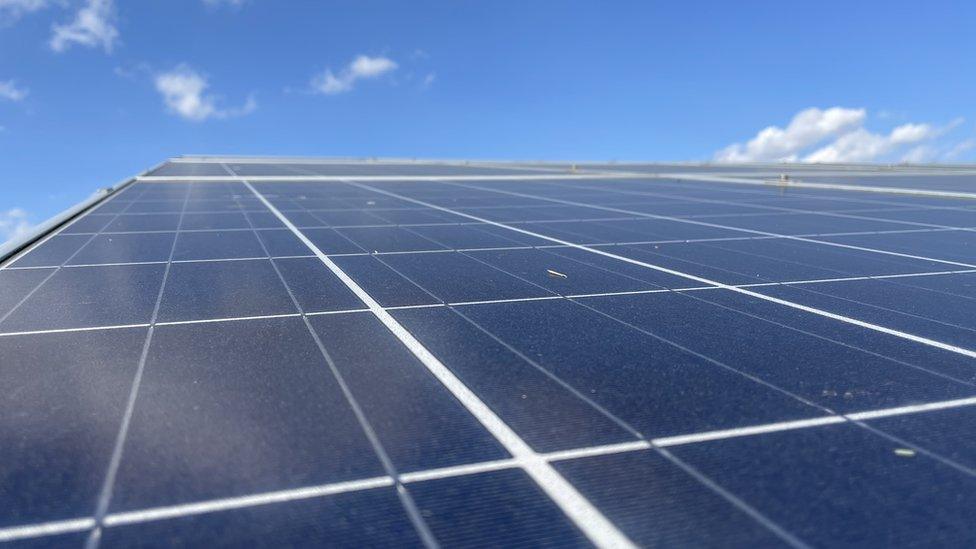
Chisbon solar farm was asked to power down by grid operators on a bright sunny day
Chisbon solar farm, in St Osyth, near Clacton-on-Sea, is a 13MW installation in the Essex countryside.
On the day the BBC visited – and as bright sunshine bathed the solar panels – UK Power Networks had asked it to power down between 12:00 BST and 14:00 BST.
It does this when it predicts too much power may be generated and it cannot move it efficiently to other areas.
When solar and wind farms are asked to shut down, power stations often have to fire up to meet demand elsewhere on the grid. The cost of doing that in 2021 was £1.2bn.
That cost ultimately ends up on customers' bills and the government has predicted, external it may rise to £2.5bn a year by the end of the decade.
Balancing supply and demand on the electricity grid falls to operators including UK Power Networks. Its director of innovation, Ian Cameron, said the pilot Mr Bradley took part in aimed to see if customers could "soak up excess generation" rather than "turning down" renewable generators.

Ian Cameron from UK Power Networks is encouraging customers to be more flexible with when they use electricity
He said the grid needed consumers to "step forward and engage with the energy system".
The peak period for electricity demand is between 17:00 BST and about 21:00 BST, Mr Cameron added, and that drawing 15% to 20% away from that period "makes a significant difference".
"The alternative would be turning down or building more infrastructure to get that local generation further across the country, which is costly – big infrastructure projects cost a lot of money and all that money ultimately goes on to electricity bills."
Mr Cameron added that the "best opportunity, rather than trying to store it for later use" was encouraging customers to be "flexible".
"For example, electric vehicles – can we get them to charge? Could we have our heating on at a different time of the day?" he said.
"Our job as a grid operators is to make sure we deliver the most efficient investments and we believe local generation for local people is the most efficient way."

'Doubly disadvantaged'
The "Power-Ups" are announced around a day before the free window. Customers living in certain postcodes and who have pre-registered, can take part.
Rosie Robison, a professor of social sustainability at Anglia Ruskin University, said it was important such schemes did not leave those on low incomes "doubly disadvantaged" because they could not make the most of them.
Those "with more resources" and "technical know-how" may find it easier to access the scheme and save money immediately, she said.
Working patterns and confidence in technology could affect the ability to take advantage of the offer, she said.
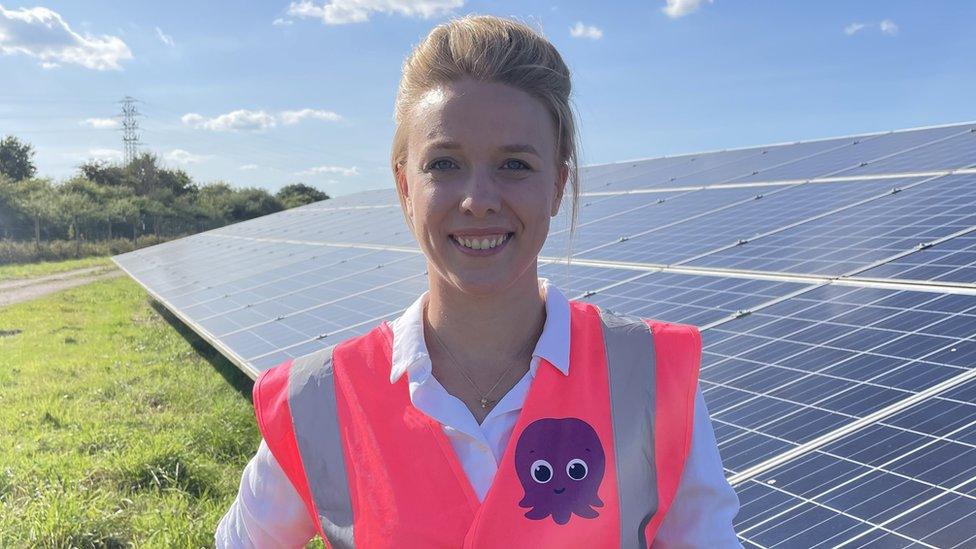
Clem Cowton said the scheme helps the whole electricity grid save money by running more efficiently
Standing next to one of Chisbon's solar panels, Clem Cowton, Octopus's director of external affairs, said: "If a community is hosting a local wind farm or a local solar farm, they should see the benefit from it.
"But what's fantastic about this is it helps the whole grid save money because we're using our infrastructure much more efficiently.
"It means we don't have to build loads of extra copper wires, more pylons, more power stations than we need because we're using the energy that we are generating as efficiently as possible and that means everybody in the UK saves money."

Follow East of England news on Facebook, external, Instagram, external and X, external. Got a story? Email eastofenglandnews@bbc.co.uk or WhatsApp us on 0800 169 1830
- Published19 June 2023

- Published11 May 2023
